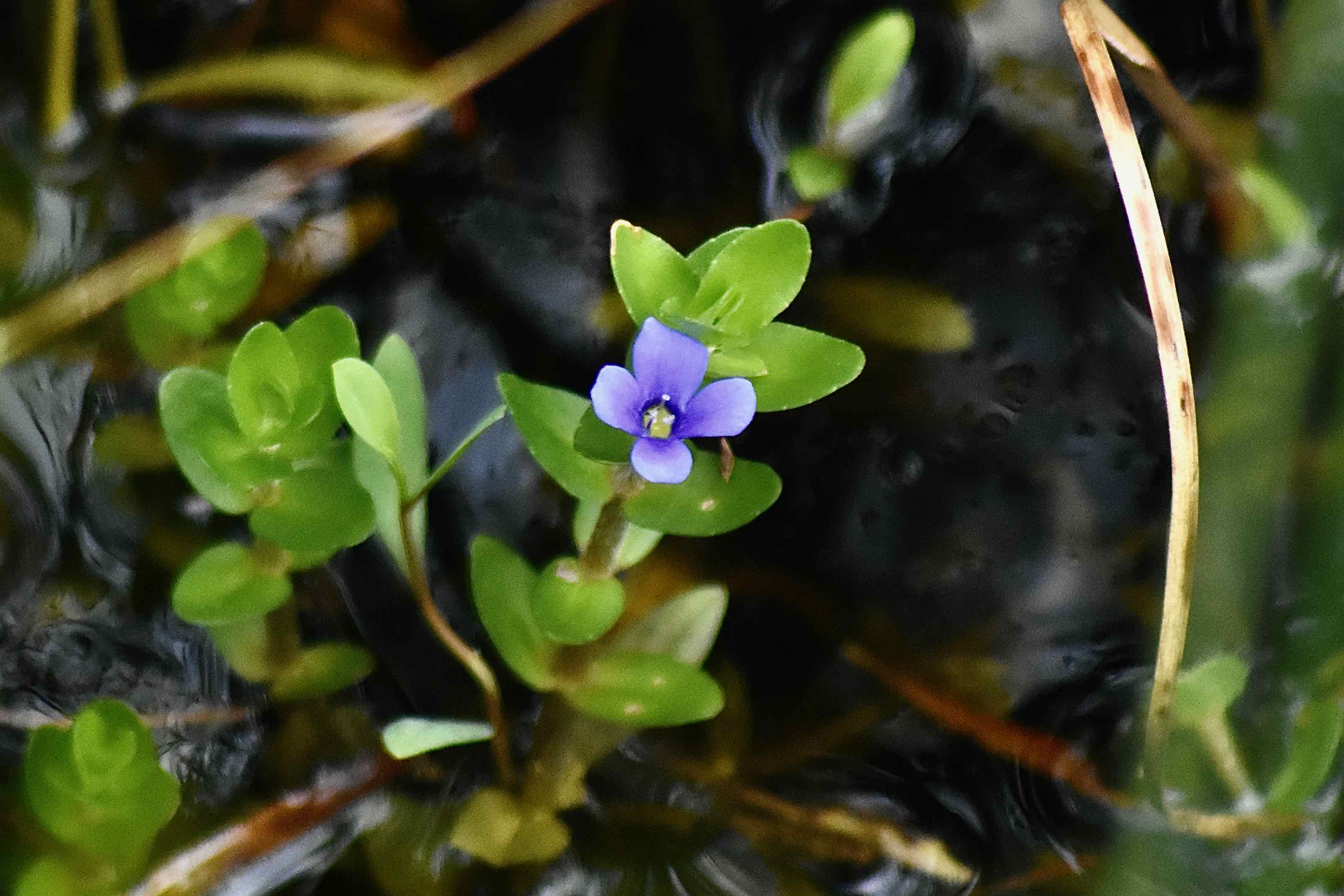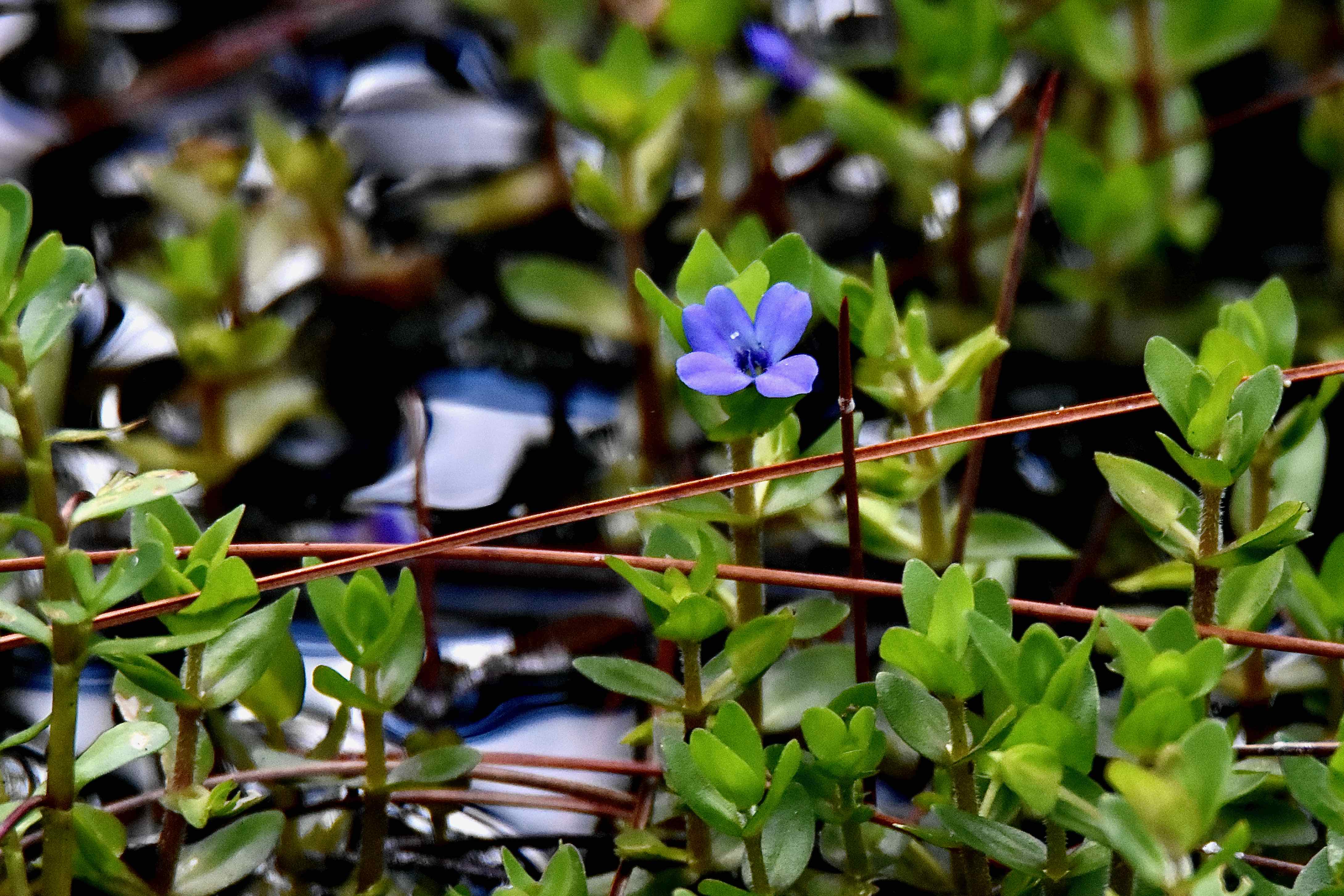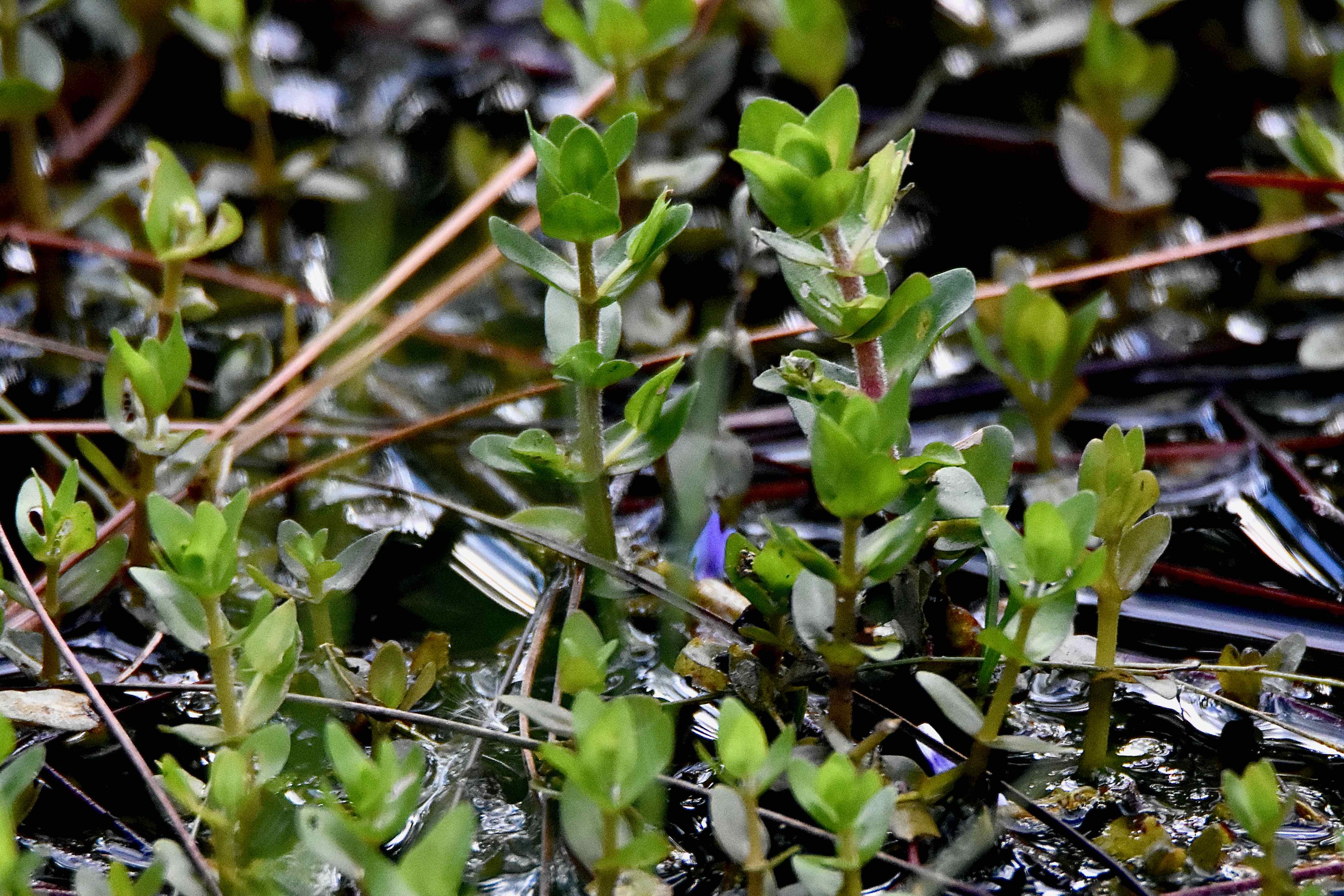
Lemon bacopa, photographed at Acreage Pines Natural Area, Loxahatchee, Palm Beach County, in July 2016.
Crush the leaves, and you'll know instantly where lemon bacopa, Bacopa caroliniana, gets the first part of its name. Or maybe not. There's at least one prominent contrarian out there who says otherwise, but we'll get to that in a bit. Some basics first.
Lemon Bacopa is native to the southeastern United States from Maryland to Texas, including Florida. It's found throughout the state, including both the Panhandle and the Peninsula.
Lemon bacopa is an emergant plant, meaning it grows in water but extends above the water line — emerging from the water, if you will. It's a deceptively small plant, appearing only about six inches or less above the water, but the stem can extend several feet under water. It's capable of forming large patches. Lemon bacopa can be found along the edges of freshwater ponds, marshes and swamps. It can also grow in moist soil. We found it growing in a dried mudflat at Cypress Creek Natural Area near Jupiter in northern Palm Beach County. It looked so out of place that it actually took us a few minutes to realize what we were looking at.
Lemon bacopa is grown commercially for use in aquariums. One dealer calls lemon bacopa an "exceptionally undemanding" plant to grow.
The flowers are showy, typically blue, as seen in the photographs on this page, but can be white as well. They bloom year round. The leaves are small, round, relatively thick and succulent. They are arranged opposite each other along the stem. One distinguishing feature: the upper stems are hairy.
Bacopa is a Latinized version of the name of the plant given to it by natives in French Guiana. There are two other members of the Bacopa genus that are native to Florida and found growing in our neck of the woods: water hyssop, aka B. monnieri , commonly found in wet habitats here, and B. innominata, aka tropical waterhyssop, which is rare enough in South Florida that the Institute for Regional Conservation considers it critically imperiled.
Although it is native, Lemon bacopa can be a bit of a pest and difficult to control especially when growing in farm ponds.
Green Dean at Eat the Weeds argues that the crushed leaves actually are more limey than lemony and that the correct name should be lime bacopa. We are agnostic on the matter. In any case, Green Dean says that pouring hot water over the crushed leaves makes a nice tea.
The Seminoles used lemon bacopa as a sedative, cough medicine, as a respiratory aid and to treat certain chronic conditions.
While its cousin, B. monnieri, water hyssop, has been widely used in traditional medicine for centuries, particularly in India, and well studied by western scientists, lemon bacopa has been largely overlooked. One study did find that extracts from its leaves do have compounds that have some antifungal and antibacterial properties, including against staph.
Lemon bacopa is a member of Plantaginaceae, the plantain family. Other names include blue water hyssop and lemon hyssop.
Acreage Pines Natural Area Also seen at Loxahatchee Slough Natural Area
.



